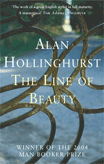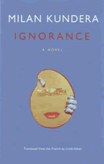Alan Hollinghurst: The Line of Beauty
Alan Hollinghurst’s fourth novel,
The Line of Beauty, follows the story of Nick Guest, a lodger of the wealthy Fedden family, through the landslide years of the Conservative government in the 1980s. A bildungsroman, split into three sections, it observes Nick over four years as he climbs the social ladder, led by his dreams of wealth, status, and beauty, which ultimately lead to his downfall.
Nick has engineered his rise by befriending, at university, the son of minor MP Gerald Fedden, Toby, to whom he is attracted. Post-Oxford, he has moved into the home of the Feddens, an invite from Toby. The tale follows Nick’s first romance with Leo, a black social worker, and then moves on to his relationship with a beautiful millionaire, before dwelling on his eventual downfall. Throughout these events, which make up the aforementioned sections, the author examines the 1980s socially, politically, and beautifully.
First, the language;
The Line of Beauty's prose is a homage to Henry James, and Hollinghurst has it perfect, his contemporary take allowing less ambiguity with description. And it’s the description that exemplifies this novel; long, sweeping sentences, realistic action, and colourful observations, of the players’ thoughts and expressions, all punctuated with enough dialogue to complete, without being indulgent, every scene. With such detail on display, the novel takes its time, but the gradually developing arena Hollinghurst is showing us becomes a world in its own right.
Throughout the narrative, running at an unhurried pace, the characters are exemplary. The aesthete Nick Guest, so aptly named, searches for beauty in everything around him while being less than perfect himself. The Fedden patriarch, Gerald, an MP and philistine, chases his ambitions of having the Prime Minister, referred to as ‘the Lady’, to his house, and having his likeness realised by satirical puppet show,
Spitting Image. Nick’s lovers (Leo, comic; the millionaire, hedonistic) draw empathy, while all the others in his life, having their positives and negatives traits, walk confidently off the page. Even Toby’s sister, Catriona, fittingly nicknamed ‘the Cat’, being the black sheep of the family, is perfectly realised, from her early neurosis, passing her chemically induced crests and troughs, to her rebellion from the family and unerring desire to tell the truth.
And the 1980s, as a setting, provides a reflection on a depressing period in British history: unemployment is on the rise, the rich are getting richer, and AIDS is a grim shadow waiting to kill those who aren’t careful. Moving in closer, to the London locations, the novel is rife with upper class dwellings, in which airy rooms are decorated with striking aesthetics despite the ignorance, Nick being the exception, of the occupants. The art, vases, paintings, and furniture, in the Feddens’ house serves only to demonstrate status, something Gerald is always striving to improve.
When Hollinghurst won the 2004 Booker Prize for
The Line of Beauty, it became the first piece of gay fiction to take receipt of the award. There are, as you may expect in such a book, some scenes of homosexual sex, but the author, with great skill, doesn’t delve too deeply into being graphic, ensuring a comfortable read, and, in doing so, reveals facets of gay life that, to many readers, may have been unknown before.
The Line of Beauty is a triumph for literature; its characters are complex and engaging, its setting real without being nostalgic, and its themes thoroughly explored. It takes no moral stance, allowing the reader to decide as to the motivations of its characters and to their comeuppance. Its set pieces are incredibly wrought, the scene with Nick, high on cocaine, dancing with Margaret Thatcher, when Feddens achieves one of his dreams, being of particular merit. The humour also, for it is incredibly witty, shines out from the events and the dialogue, and it gives that little bit of light to what is, in essence, a tragic novel. At just over five hundred pages, it is a long book, but taking the time to read it proves that each page is worth it; in fact, it’s a book of beauty.













